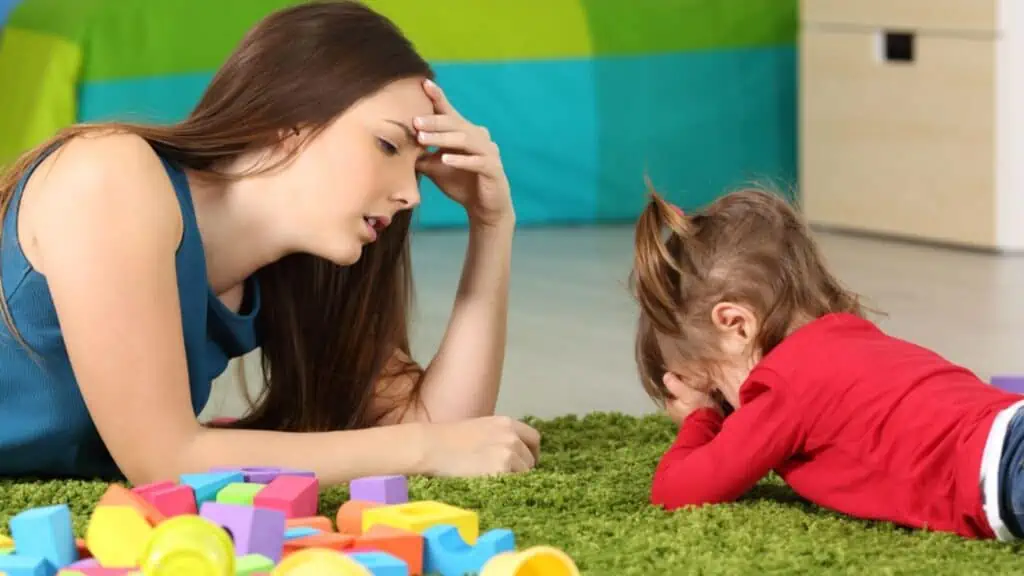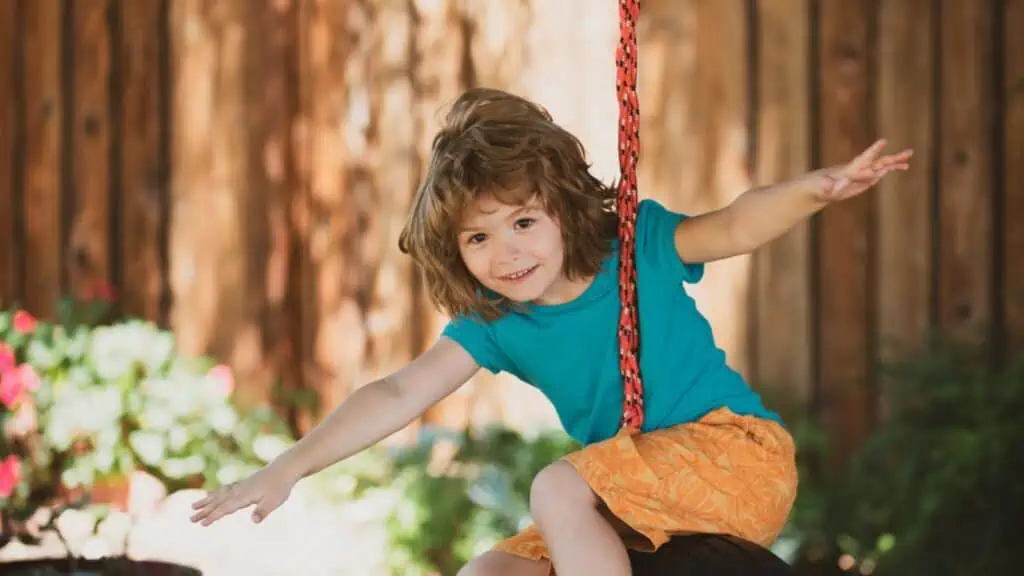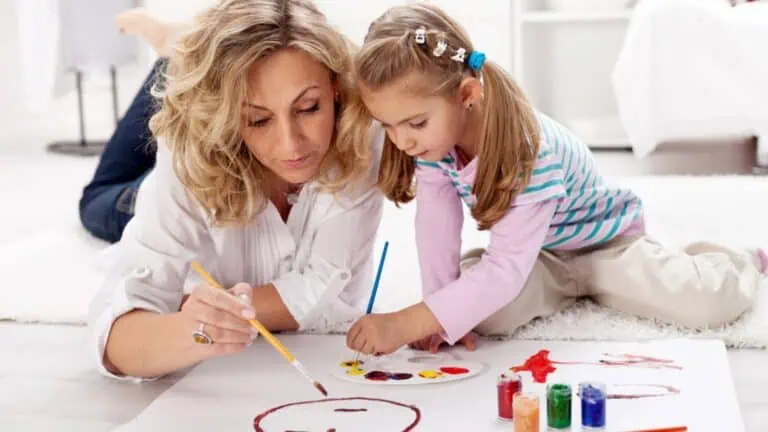15 Ways to Break the Cycle of Yelling as a Parent
This post may contain affiliate links. As an Amazon Associate, I earn from qualifying purchases.
As parents, we know yelling isn’t conducive to positive communication with our children. However, in the heat of the moment, it can be difficult to control our emotions and refrain from raising our voices. Yelling can cause fear, anxiety, and low self-esteem in children (and guilt in parents), and it often leads to a vicious cycle of negative behaviors.
Before having kids, many of us think we’ll never resort to yelling as a form of discipline. But the reality is parenting is hard, and we all have our breaking points. The good news is there are ways to break this cycle and foster a more peaceful and loving home environment.
Most people dislike yelling but struggle to break free from its grip. Resisting the urge to raise one’s voice demands significant effort. Here are 15 ways to break the cycle of yelling as a parent.
1. Recognize Your Own Mental State

If we’re honest enough, sometimes a parent yells, not so much because of what the child did, but because of their own mental and emotional state. Recognize when your response toward the child is triggered more by your own shortcomings and emotional state than the child’s misbehavior.
Sometimes, you’re just exhausted, and all fuses are short. Deal with your emotions before responding to the child’s ill behavior.
2. Apologize For Yelling

We fall, and sometimes we yell even after promising ourselves that we won’t. Letting your child know that you are sorry for yelling at them when it happens keeps you on guard against doing it again.
This also helps the child know that yelling isn’t good, even if mommy or daddy did it, and will keep them from yelling at others too. Plus, showing your vulnerability is always a valuable lesson for a child to learn that we all make mistakes.
3. Lower Your Expectations

We set high expectations for our children and then get frustrated when they cannot meet them. We must remember that they are kids and will perform in the capacity of kids. They are learning and growing every day.
While it’s wonderful to set high goals for your children, make them reasonable enough to prevent both you and the child from getting upset when there’s real or imagined failure. Plus, when they do fail, use it as an opportunity to teach them instead of yelling at them.
4. Anticipate And Prepare For Melt Downs

Once you have known your kid long enough, you’ll know what triggers their meltdowns and your frustrations enough to prepare for them.
This may look different to different parents. Examples include carrying extra snacks, an extra hat, or always having the purple bowl ready and clean for meals.
In addition, giving kids clear boundaries and what to expect next can help sidestep a lot of potential meltdowns for kids and parents alike.
5. Know That Some “Misbehavior” Is Normal

We may want our little bundles of joy to never have a streak of ill behavior. Still, some things we consider bad manners may be acceptable and explainable toddler or teenage behavior. After all, kids are meant to push boundaries; that’s literally their job.
There’s nothing wrong with your child (or you) if they color a little outside the lines. It’s all part of development.
6. Delay The Lesson Until You’re Calmer

Instant justice and lessons may sound noble, but the lesson is lost in all the yelling. A child will tune out when you start nagging and raising your volume. Then, the child clearly misses the point; wait until you’re both calm before administering the lesson.
This teaches the child that self-control is possible and increases your muscle to withstand bad behavior without losing your cool.
7. Devise Ways To Calm Yourself

We might have a list of go-to ways to help our children calm down, but what about the adults? We also need a list for Moms and Dads.
Give yourself a time-out, breathe and count to 15, stare at a piece of furniture—anything you need to do to calm your nerves and keep the yelling instructions at bay.
8. Forewarn The Kids

Yelling is bad enough, but it’s traumatizing when the kids are startled by your sudden yelling with no prior warning that their behavior is unacceptable. Let the kids know their behavior is driving you off the edge, and they have a few minutes to behave.
While blaming the child for your outbursts isn’t ideal, sometimes kids are so wrapped up in their current mood or activity that they don’t realize you’re starting to boil. Respectfully inform them how you’re feeling without making it about them.
9. Know What Triggers You

If you’re easily provoked to yell, find out what triggers you to be aggressive with your children and address it.
Your explosive response may stem from an unpleasant experience you had during the day, and addressing it helps you respond more calmly. Or you might have your own childhood trauma that you haven’t fully processed and need to tackle head-on with awareness or the help of a professional.
10. Yell, When You Have To

There are times when you actually need to yell, and you have to know when that is. If a child is in imminent danger and the only way to get their attention is to yell at them to get them away from danger, do it.
But make sure to explain why you yelled afterward and reassure them that it was for their safety.
11. Take Care Of Yourself

Neglecting our own well-being can lead to increased stress levels and shorter tempers.
Make sure to prioritize self-care through exercise, hobbies, or taking time for yourself. This will help you stay calm and patient when dealing with your children. Being the best parent means taking care of yourself first.
12. Be Mindful Of Your Tone

Our tone can convey anger and frustration even when we aren’t yelling. Be mindful of your tone and try to speak calmly and gently, even when disciplining or correcting your child’s behavior (easier said than done, but possible with practice).
This will show them that you control your emotions and model effective communication for them to follow.
13. Choose Your Battles

Not every misbehavior needs to be addressed immediately or with yelling. Learn to choose your battles, decide which behaviors are worth addressing, and which ones can be let go.
This will help you avoid unnecessary conflicts and keep your home environment more peaceful.
14. Seek Help And Support

Parenting can sometimes be overwhelming, and it’s important to acknowledge when we need help or support. If needed, reach out to other parents, join a parenting group, or seek professional counseling.
Having a support system can help alleviate stress and prevent yelling episodes.
15. Practice Positive Parenting

Positive parenting focuses on building a strong bond with your children and using positive reinforcement to encourage good behavior. This approach is based on mutual respect, understanding, and empathy.
By utilizing positive parenting techniques, you can create a calmer and more peaceful environment in your home, reducing the need for yelling. Not sure where to start? There are tons of great books and online resources to get you started.
20 Strong Words Parents Should Never Say to Their Kids

Countless adults sitting in a therapist’s office today are grappling with the lasting impact of words spoken by their parents during childhood. Regardless of how you perceive yourself, in your child’s eyes, you are nothing short of the most remarkable thing to happen to them since “skip intro.” This underscores the critical importance of being mindful of what you say to your children, as your words become the small but influential voice in their developing minds.
20 Strong Words Parents Should Never Say to Their Kids
How to Be a Good Mother: 16 Practical Tips

Being a mom is one of the world’s most important, challenging, and rewarding jobs. It’s also one of the most difficult to define. What does it mean to be a good mother? There are as many answers to that question, but none of them have anything to do with striving for perfection or doing more.







